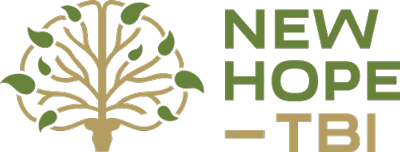
BRAIN DONATION
“Traumatic brain injury research is in an early stage. We lack the fundamental knowledge of how the brain is structured and how it works. We can’t solve any diseases until we understand the normal brain and then what’s happening with a traumatic brain injury.”
According to the Brain Injury Association of America, an estimated 2.8 million people in the US experience a traumatic brain injury (TBI) every year. While many patients make a full recovery, these injuries can have long lasting effects on the structure and function of the brain. Nearly five million Americans are living with ongoing disabilities resulting from TBI.
To better understand and treat these conditions, scientists need to study the brain itself. Sometimes it is hard for researchers to get access to brain tissue. One primary goal of NEW-HOPE-TBI is to build a library of donated human brains, which will be a powerful resource for scientists around the country.
Brain donation at end-of-life can be a meaningful way for people with TBI to advance science’s understanding of this condition. If you or someone you love is a TBI survivor who might be interested in brain donation, please reach out to our team at uwnp@uw.edu.
Together we can better understand traumatic brain injury and drive medical discoveries that help survivors flourish.
-
Brain injury and neurological disorders are common, affecting the lives of many Americans. For medical researchers to find better ways to diagnose, treat, and cure brain disorders, they need access to donated brain tissue. Medical progress absolutely depends on, and is often limited by, brain tissue shortages.
-
NEW-HOPE-TBI partners with the University of Washington BRaIN Lab to support patients and families interested in brain tissue donation. The BRaIN Lab donation page provides details about the process and other considerations. You can reach a team member via email at uwnp@uw.edu.
-
Once a potential donor expresses interest in donation, the NEW-HOPE-TBI team collects a detailed medical history and gathers information about the donor’s cognitive function. This may include an MRI or other tests. Our team collects this information so that we can pair it with information about brain structure following donation.
Our team stays in touch with registered donors and their families. It is important to make sure that those closest to the potential donor understand their wishes around donation and know how to contact NEW-HOPE-TBI near the end of life.
At the time of death, our team facilitates transportation of the body to the pathology lab where the brain is recovered. Brain tissue is analyzed and preserved for future research. Following brain removal, the body is returned to the family for a funeral or cremation.
-
NEW-HOPE-TBI covers all costs involved with transportation and retrieval. They do not cover the costs of a funeral or cremation.
-
Tissue from a single donated brain can be used for many different kinds of research.
NEW-HOPE-TBI analyzes the physical, microscopic, and molecular structure of the brain. The goal is to find links between brain aging, injury, and neurodegeneration in order to find better ways to detect and treat brain injuries.
Other scientists can apply to access donated brain tissue for their own research projects. All research studies that propose the use of brain tissue go through a rigorous approval process to ensure scientific merit and ethical responsibility. Protecting the privacy of donors and their families and the confidentiality of medical information is a top priority.
To learn what kinds of discoveries are made possible by brain donation, please read the highlights of brain research summarized by the National Institute on Aging. Also listen to this episode of NPR’sScience Friday.
-
Expressing an interest in brain donation and registering through the UW BRaIN Lab does not obligate you to donate. You can withdraw at any time. Withdrawal will not affect your access to medical care in any way. Privacy and confidentiality of the information you provide will be maintained regardless of outcome.
